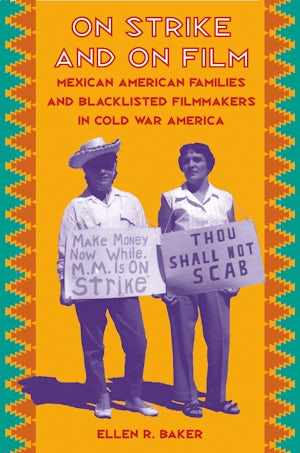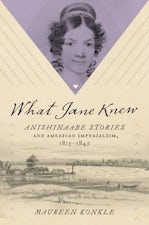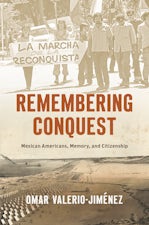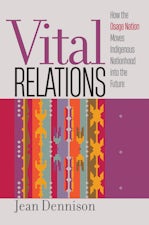On Strike and on Film
Mexican American Families and Blacklisted Filmmakers in Cold War America
By Ellen R. Baker
368 pp., 6 x 9, 20 illus., 2 tables, 2 maps, notes, bibl., index
-
Paperback ISBN: 978-0-8078-5791-5
Published: March 2007 -
E-book EPUB ISBN: 978-1-4696-0654-5
Published: September 2012 -
E-book PDF ISBN: 979-8-8908-7975-2
Published: September 2012
Buy this Book
- Paperback $37.50
- E-Book $27.99
For Professors:
Free E-Exam Copies
Baker also explores the collaboration between mining families and blacklisted Hollywood filmmakers that resulted in the controversial 1954 film Salt of the Earth. She shows how this worker-artist alliance gave the mining families a unique chance to clarify the meanings of the strike in their own lives and allowed the filmmakers to create a progressive alternative to Hollywood productions. An inspiring story of working-class solidarity, Mexican American dignity, and women's liberation, Salt of the Earth was itself blacklisted by powerful anticommunists, yet the movie has endured as a vital contribution to American cinema.
About the Author
Ellen R. Baker is associate professor of history at Columbia University.
For more information about Ellen R. Baker, visit
the
Author
Page.
Reviews
"The book reflects [Baker's] research into published sources, but she also interviewed a number of the key participants and used numerous archives, government records, and unpublished materials."--The Journal of American History
"An innovative treatment of the strike’s ethnic roots and gendered character that provides a valuable addition to the fields of labor, ethnic, and women’s history."--Journal of American Ethnic History
"Baker has written an excellent, refreshingly cross-disciplinary study of Mexican American families involved in the 1950 Empire Zinc strike . . . and the making of the 1954 film Salt of the Earth by blacklisted Hollywood artists. . . . Highly recommended."--CHOICE
"Several researchers have approached this subject, but Baker's perspective is unique."--Western Historical Quarterly
"Remarkable! . . . A solid example of what a community study should do: it should place the local in the context of the national in order to properly contextualize the analytical conclusions of the author."--Labor History
"A thoroughly researched study."--Journal of the West




